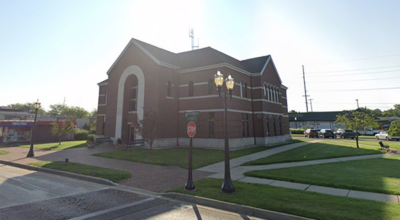State cuts to schools to be slightly less
Published 11:12 pm Thursday, July 1, 2010
By AARON MUELLER
Niles Daily Star
The Michigan Legislature approved the K-12 school aid budget for the upcoming academic year Thursday, a deal that will give public schools an extra $11 per student by the end of September.
The budget was passed by a 37-1 vote in the Senate and a 98-6 vote in the House, sending it to the desk of Gov. Jennifer Granholm, who is expected to sign it. The deal came through on the first day of school districts’ new fiscal year. The move gives back $11 per pupil of the $165 per pupil decrease that hit schools this past school year.
Rep. John Proos, R-St. Joseph, voted for the budget.
“It provides certainty to the schools as they begin their fiscal year today,” Proos said in a phone interview from the House floor Thursday. “This is the earliest in several years that we’ve been able to come to an agreement on this school aid budget.”
While Proos and other lawmakers are pleased with passing the new budget, Niles Community Schools Superintendent Richard Weigel has mixed feelings.
“We’re certainly glad we don’t have greater cuts from the state,” he said. “But to use a form of an analogy, if someone takes $165 from your paycheck and then decides to take only $154, they’re still taking from it.”
“Retirement costs keeping going up, all other costs keep going up and we’re still basically not meeting our needs,” Weigel said.
The district has already passed its budget for the coming year, but Weigel said the $11 per pupil increase will help “minimally” next year.
“It’s not enough to make up for the shortfall,” he said.
Under the agreement, the $236 million surplus in the School Aid Fund will remain there for now.
But Weigel expressed concern that the state may not leave the money with the schools for long.
“It’s earmarked for schools, and I’m concerned they will take the money and use it for something else,” he said.
Proos hopes the legislature won’t be quick to take the surplus from the schools and use it to balance the state budget.
“We need to keep from spending the school aid surplus,” he said. “We need to be prudent with any extra money, knowing that our economy is not as healthy as we want it to be. Keep some in the bank for problems in the future.”
Although passing the education budget was an important step for lawmakers, the remainder of the state budget still looms large.
“This still leaves a lot of heavy lifting in the budget that we should complete sooner rather than later,” Proos said.






